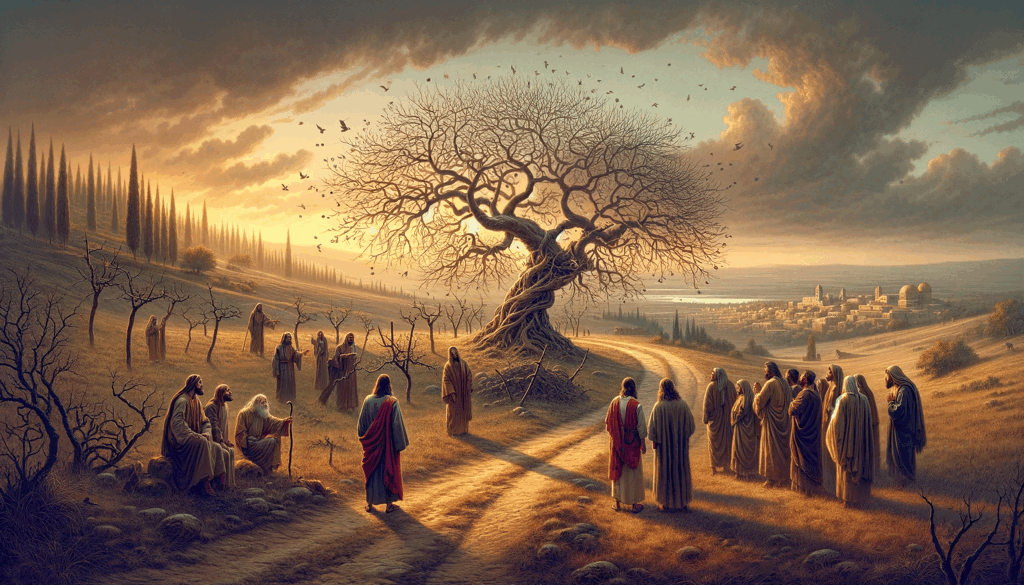In the 11th chapter of the Gospel of Mark, we are presented with a series of events that not only depict the final days of Jesus in Jerusalem but also encapsulate profound teachings on humility, faith, and the essence of true worship. This narrative, rich with symbolism and action, invites us into a deeper reflection on our own spiritual journey and our relationship with the divine.
The Humble Entry
The chapter opens with Jesus’s entry into Jerusalem, not on a majestic horse as one might expect of kings and conquerors, but on a colt, a symbol of humility and peace. This choice contrasts sharply with the expectations of a messianic king who would overthrow Roman rule and restore the kingdom of Israel to its former glory. Instead, Jesus presents a different kind of kingship, one that is rooted in service and humility. This act challenges us to reconsider our own perceptions of power and leadership. In a world that often equates authority with force and dominance, the humble entry of Jesus into Jerusalem serves as a reminder that true greatness is found in service and humility.
The Cursing of the Fig Tree
Following this, Jesus curses a barren fig tree, a perplexing act at first glance, but one that carries significant symbolic weight. The cursed fig tree represents the fruitlessness of Israel, particularly its religious leaders, who failed to live up to their calling to be a light to the nations. This moment serves as a stark warning against spiritual complacency and the dangers of a faith that is all show and no substance. It prompts us to examine our own lives for areas where we may be outwardly impressive but lacking in genuine spiritual fruitfulness.
The Cleansing of the Temple
Perhaps the most dramatic moment in Mark 11 is Jesus’s cleansing of the temple, overturning the tables of the money changers and driving out those who had turned a house of prayer into a “den of robbers.” This act of cleansing is not just a critique of the commercialization of religious practices but a call to return to the essence of worship as a relationship with God, not a transaction. It challenges us to reflect on the purity of our own worship and to consider whether our religious practices draw us closer to God or simply serve our own interests.
Authority Questioned
The chapter closes with religious leaders questioning Jesus’s authority, a theme that runs throughout the Gospel. This confrontation highlights the tension between human authority and divine authority, inviting us to consider on whose authority we base our lives and decisions. It’s a poignant reminder that true authority comes from aligning ourselves with God’s will and purposes, rather than clinging to human traditions and power structures.
A Call to Reflection
Mark 11 is a powerful call to humility, faith, and authentic spirituality. It challenges us to examine the foundations of our faith, the fruitfulness of our spiritual lives, and the purity of our worship. As we navigate our own spiritual journeys, let us take to heart the lessons of humility, trust in God’s authority, and the pursuit of a faith that produces lasting fruit. In doing so, we draw closer to the heart of God, embracing a kingdom not of this world but rooted in the values of service, humility, and love.

